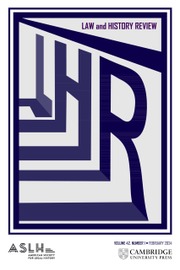Assembling India’s Constitution
In this paradigm-shifting history, two leading historians of India re-examine the making of the Indian constitution from the perspective of the country's people. In a departure from dominant approaches that foreground the framing of the text within the Constituent Assembly, Ornit Shani and Rohit De instead demonstrate how it was shaped by diverse publics across India and beyond. They reveal multiple, parallel constitution-making processes underway across the subcontinent, highlighting how individuals and groups transformed constitutionalism into a medium of struggle and a tool for transformation. De and Shani argue that the deep sense of ownership the public assumed over the constitution became pivotal to the formation, legitimacy and endurance of India's democracy against arduous challenges and many odds. In highlighting the Indian case as a model for thinking through constitution making in plural societies, this is a vital contribution to constitutional and democratic history.
- Offers a new paradigm for understanding the making of the Indian constitution
- Expands the source base for constitutional and democratic history to uncover previously ignored actors
- Provides new insights into fundamental rights, federalism, minority rights, separation of powers, judicial independence, affirmative action, caste politics and rights of indigenous people
Reviews & endorsements
'A splendid contribution showing that not just the constitutional elites, but the ordinary people are co-equal authors of the constitution. Brimming with comparative law and jurisprudence insights.' Upendra Baxi, University of Warwick
'A formidable provocation to the scholarship on India's constitutional history. This stirring book opens up an altogether different world of constitution-making, as De and Shani uncover an astonishing archive, showing how diverse publics - marginalized by geography and identity - made claims upon the constitution-making process, through collective deliberation and public engagement.' Niraja Jayal, King's College London
'Assembling India's Constitution would leave a reader in no doubt that India's constitution is a product of an iterative, dialogic, even agonistic engagement with, by, and between many Indian publics. Challenging simplistic and uninformed characterisations of the Constitution as elitist and colonial, De and Shani demonstrate - with characteristic rigour and an astonishing body of evidence - that the continuous making and remaking of India's constitution has been far more autochthonous and substantively democratic than many others which only formally satisfy the democratic checklist of enactment by directly elected assemblies or endorsement in popular referendums. Their attention to the engagement of pluralistic and collectivised 'publics' rather than a supposedly monolithic 'people' in the constitution-making process demands a serious rethink of the traditional constituent power theory. A must-read for anyone interested in democratic constitutionalism.' Tarun Khaitan, London School of Economics and Political Science
'Rohit De and Ornit Shani's Assembling India's Constitution: A new democratic history is a must-read for those interested in India's constitutional project. Its core argument is that to understand the genesis of the Indian Constitution it is important to move beyond the debates of the Constituent Assembly and to pay close attention to the how communities and ordinary people across India engaged with the drafting of the constitution. The book presents a rich tapestry of these interactions, describing how many of the 500 princely states adopted constitutional documents establishing forms of representative government; discussing the contributions received by the Constituent Assembly from associations of women, Dalits, upper and lower castes, and religious groups of every faith and denomination; outlining the contributions from provincial legislatures, the judiciary and the civil service, and finally reviewing the important demands made by some tribal communities. It is an engaging read that casts a valuable new light on the making of India's constitution.' Kate O'Regan, University of Oxford
'Assembling India's Constitution is an extended, carefully researched tribute to the perspicacity of India's civil society and its intellectual leaders as they considered the drafting of the Constitution in a time of turmoil.' Donald L. Horowitz, author of The Promise and Perils of Devolution: Federalism, Regional Autonomy, and Ethnic Conflict
Product details
September 2025Hardback
9781009330053
371 pages
229 × 152 mm
Not yet published - available from September 2025
Table of Contents
- Introduction. A new history of India's constitution making
- 1. 'Our constitution'
- 2. Making the constitution a public affair
- 3. Competing constitutionalism: the princely states and the constitution
- 4. The emerging state and the constitution
- 5. The theatre of the assembly
- 6. The horizons of India's constitutional imagination: tribes and constitution making
- Conclusion. An open site of struggle.










